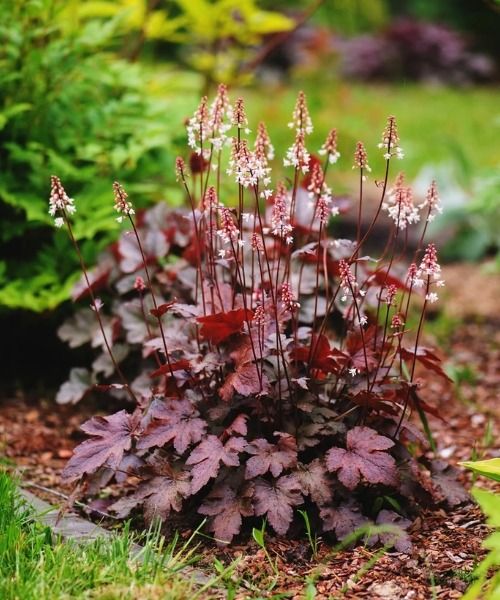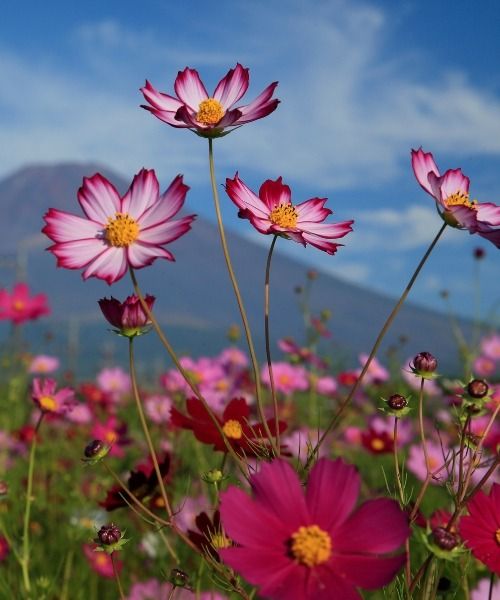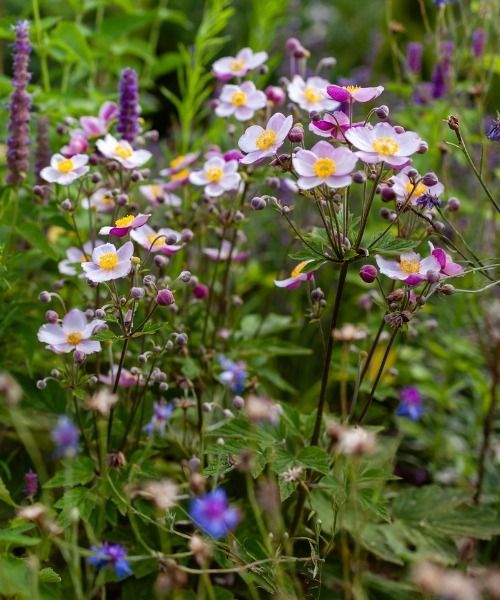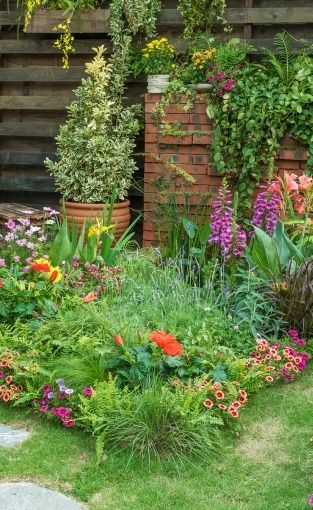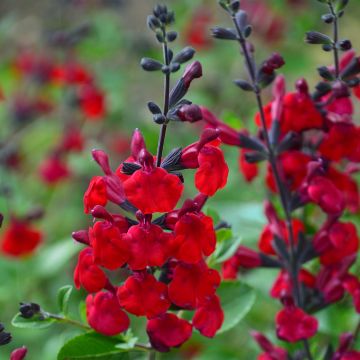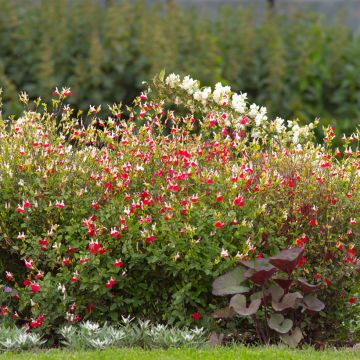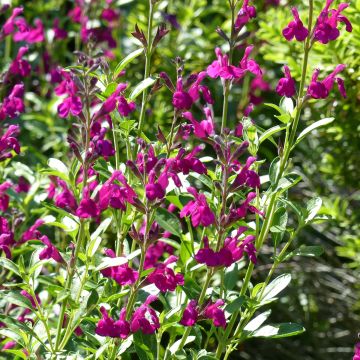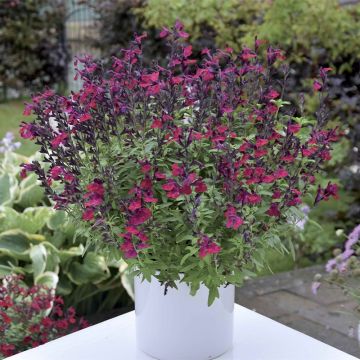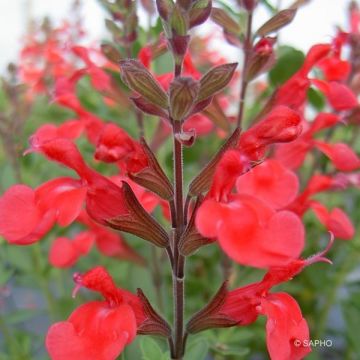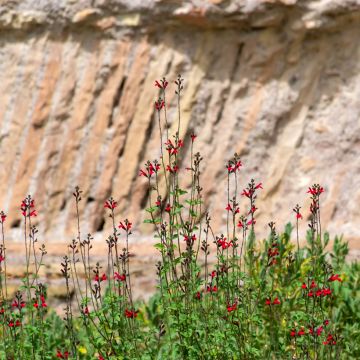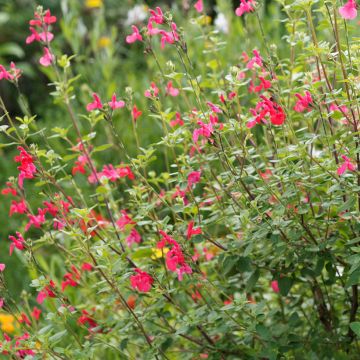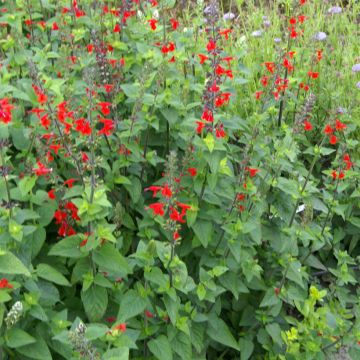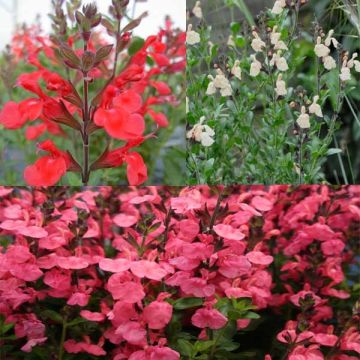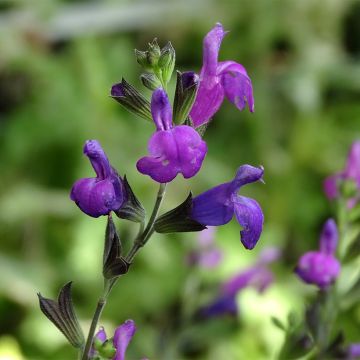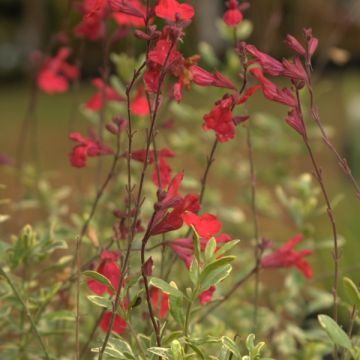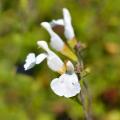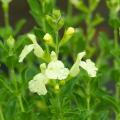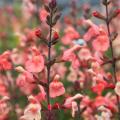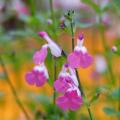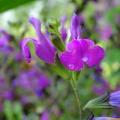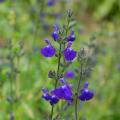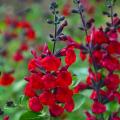Red flowering bushy Sage
Does this plant fit my garden? Set up your Plantfit profile →
Available in 3 sizes
Available in 3 sizes
Available in 2 sizes
Available in 2 sizes
Available in 2 sizes
Available in 3 sizes
Available in 2 sizes
Available in 1 sizes
Available in 1 sizes
Available in 1 sizes
Available in 1 sizes
Our shrubby salvias with red flowers. The Graham's sage (Salvia microphylla grahamii) is the ancestor of most red shrubby salvias. This shrub native to Mexico, very floriferous from spring to the first cold, has given rise to many absolutely stunning varieties and hybrids. For example, the 'Rêve Rouge' shrubby sage, a small bush of 60cm (24in) that offers a flowering of pure and deep red, the excellent 'Royal Bumble' sage, extraordinary, which produces large intense red flowers for an exceptionally long period, or the Salvia microphylla 'Caramba', taller, whose vermilion red flowering enhances variegated white foliage. The whole range of reds, from orange red to violet red, is present in these shrubby perennials. One of the most amazing remains the 'Hot Lips' microphylla sage, whose flowers go from pure red to pure white through red and white depending on the season. These bushy perennials, with small aromatic green foliage, are among the most floriferous plants from May to October-November. The shrubby sage will grow without any problem in a rather mild and sunny climate, but it is preferably grown in a pot in our rainy and cold regions in winter, which allows it to be brought in as soon as frost is announced. If you want to plant it outside in a cold region, remember to provide it with a very well-drained soil and a location well protected and sheltered from cold winds.
Discover our collection of shrubby salvias in all colours for the terrace, balcony or garden.
Haven't found what you were looking for?

































